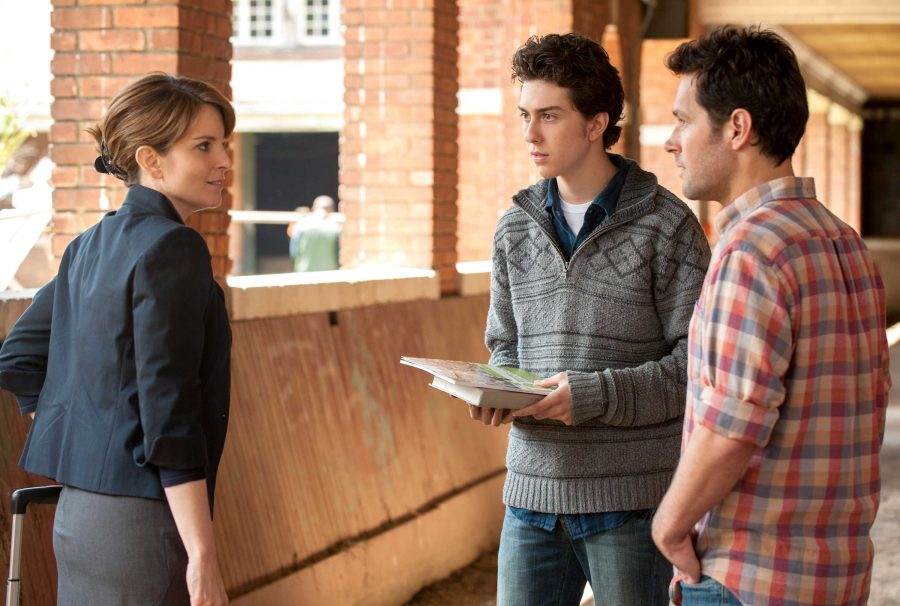With a solid core cast and a basic, not too restricting setting, “Admission” had a lot of potential. Unfortunately, most of it remained unfulfilled.
That’s not to say it was a bad movie—it wasn’t at all—but it just disappointed in the fact that it could have been so much more.
“Admission” is best characterized as a romantic comedy about a Princeton admissions officer, Portia (Tina Fey). When her live-in boyfriend of 10 years leaves her for one of his colleagues, she starts spending time around John Pressman (Paul Rudd), who is a single dad and runs a new alternative learning school in New Hampshire and tries to get one of his students, Jeremiah, into Princeton with the help of Portia. If left at that, the plot would have had enough substance to make a cliché, lovable rom-com. However, it is revealed that Jeremiah may be the son Portia put up for adoption when she became unexpectedly pregnant in college, which leaves her torn between rejecting Jeremiah based on his lackluster resume or admitting him on the belief that he is her son.
With so much going on, it’s hard to keep up with the plot and the characters are left undeveloped. Fey and Rudd are fantastic as always, and their likability as actors is what keeps the movie going. Lily Tomlin and Wallace Shawn both put on amusing performances as well as Portia’s mother and boss, respectively.
The film is full of comedic elements, specifically those characteristic of Fey’s subtle humor (the ones that make you grin to yourself, rather than laugh out loud), but they aren’t frequent enough to give it the feel of a comedy. At times, the movie parodies the college admissions process, which is one of the few leads that had a lot of potential, but never really panned out.
What the movie really needed was to focus on one of the many elements it tried to juggle for 107 minutes. A straight-up parody of the college admissions process would have been unique and amusing in the day and age when overbearing parents start prepping their kids to be able to get into top colleges from the day they are born. The film could have also been better off if it had been a good ol’ romantic comedy, as Fey and Rudd have the ability to carry the clichés and make give it their own charm. The third lead the plot could have followed was Portia’s quest to find her son, which is only picked up in the last 20 minutes of the film.
Unfortunately, these three possible plots all lost their potential when they were Frankensteined together, which instead of three good films produced one okay one. Instead of reaching a wide audience as it intended to, it fails to satisfy any one audience completely: those who crave comedy will find it falls short of the side-splitting scenes found in “The Hangover” and similar films; those looking for romance will feel like the plot is rushed with too little character development; and those who prefer drama will find it too light-hearted.
In the end, the movie was still enjoyable and evoked several laughs from the audience, but it just wasn’t the comedic brilliance it could have been with two high-bill actors like Fey and Rudd. Maybe next time.

